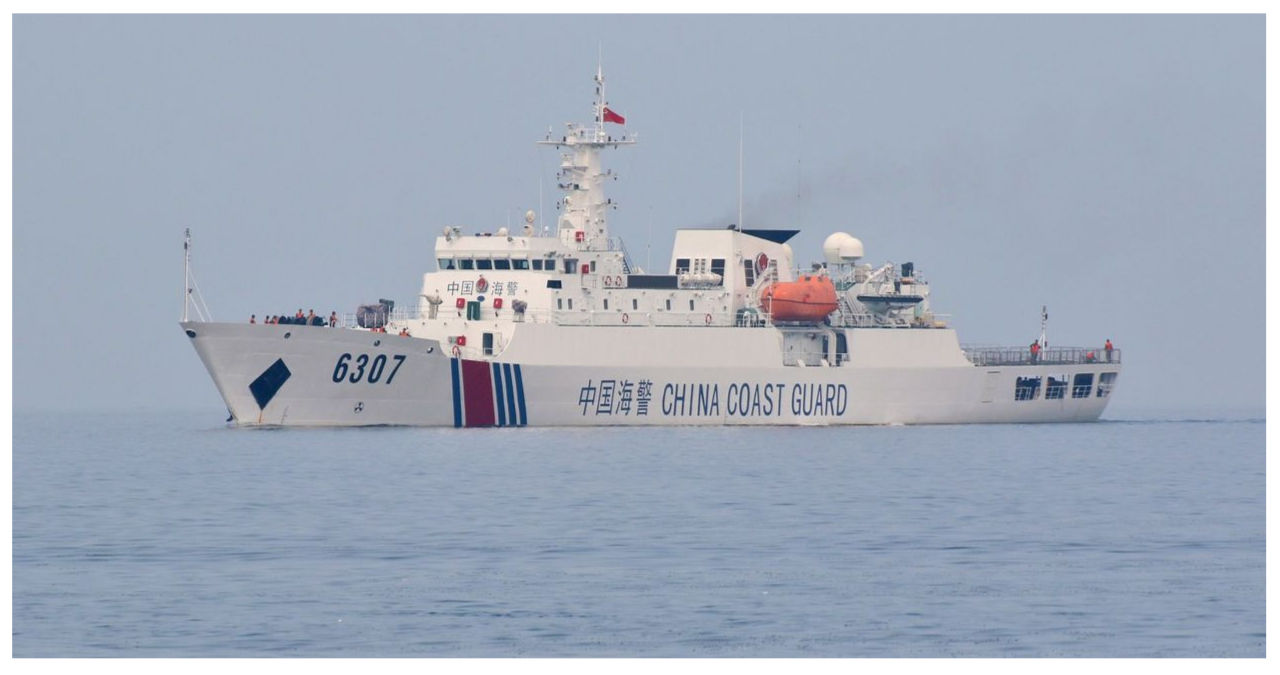China’s coast guard wasted no time in asserting its presence in the disputed Senkaku Islands. Just two days after President Joe Biden reassured Japan of the United States’ unwavering commitment to defending the territory, a fleet of Chinese ships sailed into its territorial waters. This move highlights the ongoing tensions between China and Japan over the control of these islands.
The Chinese maritime law enforcement vessel 2502, a 5,500-ton Shuoshi II-class cutter, is leading the patrol with the aim to protect China’s rights, as stated on its website and social media channels.
The Diaoyu Islands, an uninhabited island group, are situated in the East China Sea, approximately 120 miles northeast of Taiwan. China, which refers to them as the Diaoyu Islands, claims sovereignty over both Taiwan and the islands.
Ever since Japan nationalized the Senkakus in 2012, the Chinese government has increased the number of ships being deployed into the islets’ territorial sea, which spans 12 nautical miles, as well as the adjacent contiguous zone, which extends an additional 12 nautical miles beyond that. This information is based on data from the Japan coast guard.
According to an analysis by Newsweek, an unprecedented number of 1,282 Chinese vessels were deployed to the waters surrounding the disputed island group last year. This included the presence of 129 ships within the territorial sea.
The Chinese coast guard has been consistently present at the Senkaku Islands since late December. According to Japan’s database, they have dispatched ships to the area for 112 consecutive days, including every day in April so far.
According to observers, Beijing appears to be aiming to create the perception that it has effective control over the strategic features. This has led to Japan considering the need to reinforce its military capabilities, while also prompting the United States to clarify its defense obligations.
The United States acknowledges that the Senkaku Islands are under the administration of Tokyo, although it does not express any opinion on their legal ownership. Despite being allies for more than 70 years, it was only during the presidency of Barack Obama that the U.S. publicly declared that its treaty obligations also extend to the Senkaku Islands.
During a speech in the Rose Garden at the White House on Wednesday, President Biden assured Japanese Prime Minister Fumio Kishida that the United States remains steadfast in its commitment to the defense of Japan, including the Senkaku Islands, as outlined in Article 5.
In a joint statement, President Biden and Japanese leaders reiterated the United States’ unwavering commitment to Japan’s defense under Article V of the Treaty. They emphasized that the US would utilize its full range of capabilities, including nuclear capabilities, to fulfill this commitment.
“We strongly oppose any attempts made by the People’s Republic of China to unilaterally alter the status quo through force or coercion in the East China Sea. This includes actions that aim to undermine Japan’s long-standing and peaceful administration of the Senkaku Islands,” stated Biden and Kishida.
In Beijing, the next day, Mao Ning, China’s Foreign Ministry spokesperson, accused the U.S. and Japan of launching an attack and spreading negative information about China on different matters.
According to the spokesperson, China’s actions in the East China Sea and South China Sea are completely in line with international law and should not be questioned. She emphasized that the Diaoyu Island and its associated islands are an integral part of China’s territory and any unauthorized activities will be met with strong and decisive actions to protect China’s sovereignty.
The United States and Japan must be cautious in their approach to their relations with other countries, ensuring that they do not harm their interests or disrupt regional peace and stability. China strongly opposes the adoption of a Cold War mentality and the formation of exclusive alliances. Additionally, China firmly rejects any actions or policies that escalate tensions and potentially undermine the strategic security and interests of other nations.
Japan’s prime minister delivered a speech to a joint-session of Congress on Thursday, emphasizing the significant strategic challenge posed by China’s current external stance and military actions. He highlighted that this challenge not only threatens the peace and security of Japan but also jeopardizes the overall peace and stability of the international community.
The Japanese Embassy in Washington, D.C., has not yet responded to a written request for comment.



